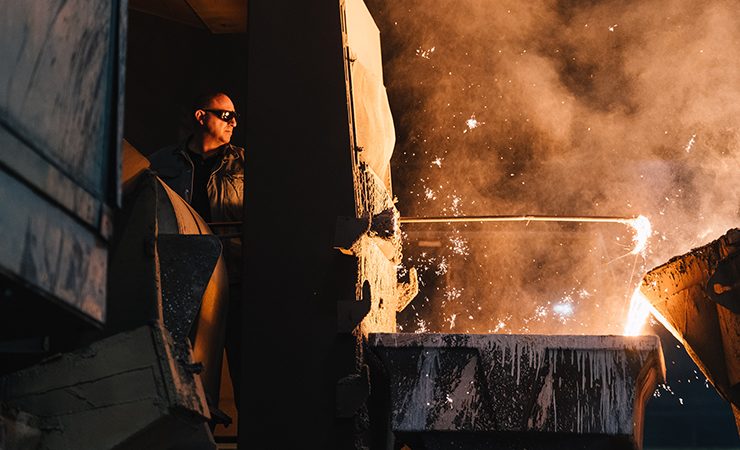Heidelberg has identified increased opportunities for the expansion of its industrial customer business, from third-party production to complementary services.
This includes an extensive range of state-of-the-art industrial production options for third-party customers, primarily from the mechanical engineering sector and comparable industries with complex mechatronic products. Here, customers include start-ups with innovative products as well as major corporations. Heidelberg intends to grow further in this environment with its comprehensive services as a system supplier for industry.
This includes the entire range of services offered by the foundry in Amstetten, Austria, which has a capacity of up to 85,000 tons of castings and is regarded as one of the most efficient in Europe. In the field of mechanical processing, Heidelberg offers individual parts, small batches, series production or customised production options. In the company’s assembly department, mechanical products or complex assemblies, including electronic components and optimised processes, are offered from a single source. To this end, Heidelberg stated that it industrialises and assembles customers’ products as a system provider and supplements this assembly service with other modules such as logistics services, and service and spare parts management.
In addition, with major global uncertainties due to the armed conflict in Ukraine and pandemic-related disruptions to international supply chains, more and more companies are looking at ways make their supply chains more local. For European production sites, for example, this means reviewing further relocations or reverse relocations from Eastern Europe. This would then also have a positive impact on carbon dioxide footprints. Heidelberg said it is also noticing this trend among third-party customers in the industrial customer business with increased demand in the foundry field, for example.
For the growth segment of electronics, tailor-made control and power electronics as well as automation systems – from the assembly of printed circuit boards to the construction of complex devices and systems – are available.
Heidelberg CEO Dr Ludwin Monz said, ‘With the industrial customer business, we are increasingly establishing Heidelberg with its comprehensive technological competencies in new growth markets. In this way, we are also making our technological expertise available in a targeted manner for new markets outside the print industry.’


